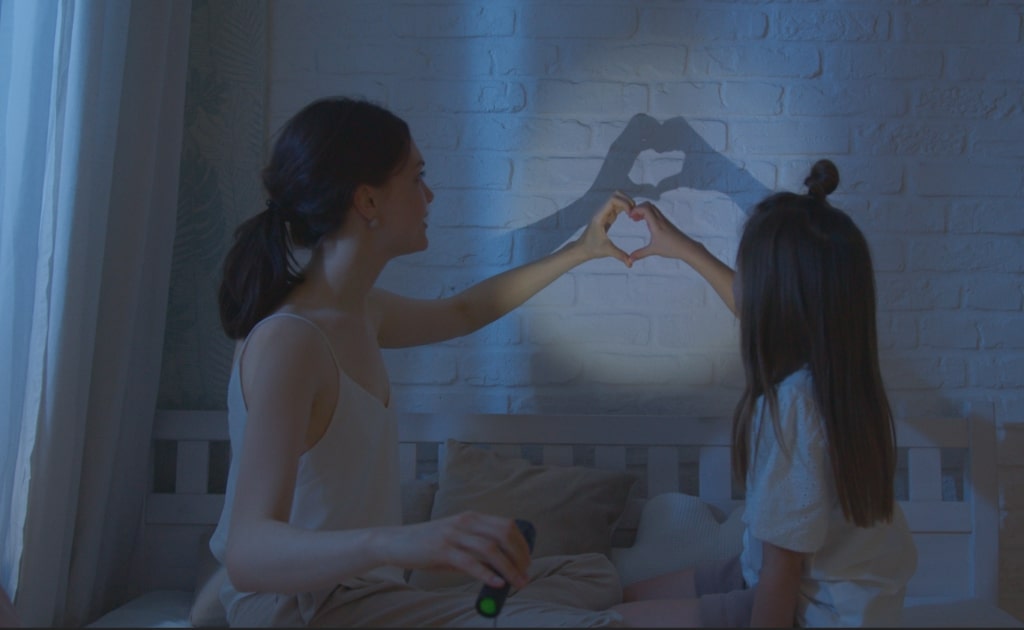There’s no ultimate rule to being a parent. However, with positive parenting, you can get the best out of this journey for you and your child. If you’re wondering how to go about this whole new world of parenting, you’re at the right spot.
Just like you, many parents around the world also apply positive parenting techniques to raise their children in the best (and easiest) way possible. In this article, you’d find valid answers to every question you have about positive parenting – what it is, how it works, and tips on becoming a positive parent.
Read on to find out!
Table of contents
First, What Is Positive Parenting?
With the right positive parenting methods, you’d get to raise your child right by focusing on encouraging good behavior and using affirmative words to motivate your little one.

Positive parenting is a parenting style that opines that all kids are born good and with an innate desire to do good things. Furthermore, positive parenting focuses on mutual respect and applying positive discipline mechanisms. With the right positive parenting approach, you’d learn to teach proper future behavior rather than punishing bad behavior that occurred in the past.
How Does Positive Parenting Work?
Most parents apply the positive parenting technique for one reason: They don’t want to raise their kids the way they were raised.
Here’s the fact: Parenting styles that center around using guilt or/and fear to govern your child are not necessary.
On the other hand, more effective styles like positive parenting would help you address your child’s specific needs and communicate with him/her in a way that ensures two-way participation. In addition, positive parenting techniques would help you assert your authority as a parent without threats, guilt-tripping, or negative comments.
With the right mix of love and support, you can motivate your little one to demonstrate good behavior at all times.
Advantages of Positive Parenting
Have you ever paused to wonder what a child would do with the right dose of love? Especially when he/she has gotten a lot of spanks and treats in the past?
Yes, you guessed right!
This child would become more receptive to correction and eventually begin to demonstrate and maintain good behavior.

With the right positive parenting techniques, you’d discover that your child would:
1. Have Less Behavior Problems
Psychological studies show that positive parenting techniques produce good outcomes in a child’s behavior and emotional development.
As we mentioned earlier, encouraging good behavior (which is basis of positive parenting) in early childhood produces better rewards in terms of reducing behavior problems. On the other hand, harsh parenting may cause more behavior problems.
2. Develop A Stronger Self-Esteem
As a fact, kids raised by parents who apply positive parenting methods raise children with really high self-confidence and self-esteem. In fact, these children would grow to believe that they can do whatever they set their minds to.
In addition, children raised with a positive parenting style grow to become more receptive to correction and varying opinions. Ultimately, this leads to proper mental health status.
3. Higher School Grades
At school, your child would face many social, emotional, mental, and academic challenges. When this happens, a child raised with a positive approach has an advantage. This is because he/she has been raised to have an effective relationship with older people, including teachers.

Positive Parenting Techniques
1. Identify The Root of the Bad Behavior
Psychology and positive parenting experts all around the world agree on this fact: something always motivates a child’s behavior, including the bad ones.
Although the motivation or reason for your child’s behavior may be silly, or annoying, it always helps to find out why he/she chose to behave that way.
With this info, you can directly address the root cause and apply this info in solving the problem or preventing a recurrence. In fact, with the right words and a great deal of patience, your little one may even feel like his/her needs have been acknowledged even if they aren’t met at the time.
Sometimes, your attention and emotional support may even be more important to your child than the actual request he/she is making.

How does this work?
Your child may choose to throw a tantrum just to get seen, heard, or cared for. In this case, the problem is not really the demand he/she is making at the moment but the innate desire to have your attention.
When this happens, identifying the root/cause of the bad behavior is the ultimate step to correcting it.
2. Be A Happy Place
As a parent, it is really important to make your child feel comfortable around you. To achieve this, you need to be kind to him/her.
While asking questions to identify the root cause of your child’s bad behavior, you need to be firm but kind enough to make him/her open up to you honestly.

Furthermore, children learn by watching.
If your little one grows up watching you yell, berate, or insult people, chances are he/she would believe that’s the only way to get things done. On the other hand, showing respect, composure, and kindness even in annoying situations would teach your child to deal with uncomfortable situations with composure, patience, and respect.
3. Correct, Don’t Punish
One of the key features of positive parenting is picking correction and discipline over punishment.
In contrast to punishing every bad behavior, applying discipline as an alternate choice would help you train your child by instruction and exercise. This way, you’d get to ‘show your child’ how to act and discourage bad behavior by using firm but kind words.
Psychologists agree that teaching children how to behave without outright blame, shame, or pain would equip them with the tools necessary to become confident and responsible adults.
4. Consistency Is Key
As you continue on this journey of positive parenting, it is really important to remember that consistency is key. Help your little one understand that good behavior would bring the right amount of praise and encouragement, but bad behavior would be firmly bur lovingly corrected.
In addition to consistency, clarity is also important. It really helps to decide on and explain the consequence of bad behavior to your child even before these issues. This is really important because clear and obvious changes to the rules may cause your child to become very confused or even push him/her to test your limits to discover what else can happen.
4. Understand The Stages
Child development occurs in stages. From baby food stages to physical milestones, it is really important to identify what stage your baby is in at the moment and relate with him/her based on that fact.
Sometimes, what you think is bad behavior may actually be appropriate for his/her age. For instance, it’s not strange for toddlers to throw tantrums. This is because that’s the only way they know how to express their emotions (which makes a lot of sense when you remember that they can’t talk yet). As a result, your baby depends on you and your positive parenting techniques to regulate these emotions and channel them effectively.
5. Start On Time
Here’s the fact: The best time to become a great parent is now.
The entire basis of positive parenting is to be the best role model for your baby. You can even start working towards it when he/she is still a newborn.

As we mentioned earlier, children learn by watching. You can begin to apply these positive parenting methods by responding to challenges in a calm, respectful, and positive way. With this, your child would learn how to relate effectively and pursue good behavior at all times.
6. Take Care of Yourself Too
Yes, we understand how stressful parenting can be.
We understand the late nights, unnecessary tantrums, multiple corrections, and confusion you may have to deal with on this journey. As a result, it is really important to take a break when you need to.
Remember, you can only care for your child if you’re caring for yourself. It actually takes being in the right mind space to apply these positive training techniques. Whenever you feel a need to take a break or do something yourself, please don’t hesitate.
It is not wrong to take a few moments to be by yourself; while at it, you can drink some cool water, take a few deep breaths.
Other Tips to Improve Your Parenting Skills
In addition to the positive parenting tips mentioned in this article, you can become a better parent by:
- Showing love and affection consistently.
- Actively listening to his/her needs.
- Creating time for your child
- Speaking in calm but firm tones
- Acknowledging and praising good behavior
- Practice positive discipline
Conclusion:
In conclusion, experts agree that there’s no ultimate guide to parenting. However, research shows that positive parenting yields positive outcomes for both children and parents. Nevertheless, identifying, understanding, and applying these positive parenting methods takes time, practice, and a truckload of patience.
Thankfully, this article has outlined everything you need to become the best parent for your little one.
With the tips and strategies mentioned in this article, you’re on the right track.
References
- Howenstein J, Kumar A, Casamassimo PS, McTigue D, Coury D, Yin H. Correlating parenting styles with child behavior and caries. Pediatr Dent. 2015 Jan-Feb;37(1):59-64. PMID: 25685975; PMCID: PMC4559268.
- Kingsbury M, Sucha E, Manion I, Gilman SE, Colman I. Adolescent Mental Health Following Exposure to Positive and Harsh Parenting in Childhood. Can J Psychiatry. 2020 Jun;65(6):392-400. doi: 10.1177/0706743719889551. Epub 2019 Dec 13. PMID: 31830819; PMCID: PMC7265606.

